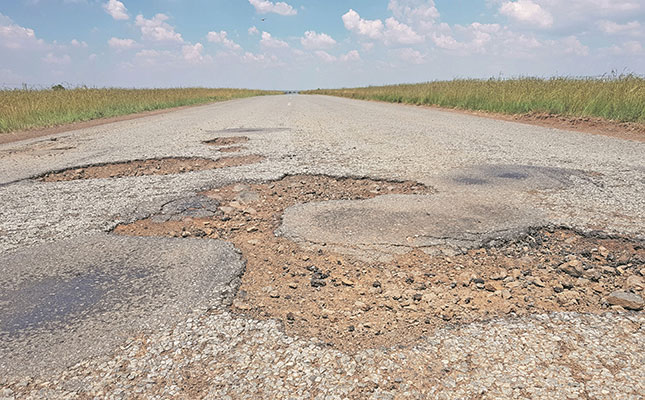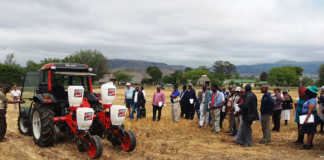
Photo: FW Archive
“This is an ongoing issue that Agri SA and its provincial affiliates have been actively involved in,” Christo van der Rheede, CEO of Agri SA, told Farmer’s Weekly.
“It’s heartening to see that this campaign has started to gain traction and we hope that the momentum will grow going forward.”
Earlier this month, the department convened a meeting between the Department of Co-operative Governance, Infrastructure South Africa, South African National Roads Agency (SANRAL), Agri SA, Agbiz, and other stakeholders to investigate how key rural roads, which had fallen into disrepair, could be rehabilitated and repaired.
Van der Rheede said the meeting formed part of the implementation of the Comprehensive Rural Development Programme (CRDP) and Agriculture and Agro-processing Master Plan (AAMP).
“Repair and rehabilitation of rural roads is critical to facilitate road logistics from farm to port, and to market.”
A presentation by officials from the department indicated that the road infrastructure was a high priority due to the fact that national, provincial, municipal and other secondary roads promoted economic viability through the safer and swifter transportation of agricultural produce.
“Currently, the biggest challenge is the fact that the maintenance responsibility of roads sits with a variety of stakeholders,” Van der Rheede said, adding that a lack of a central digital depository made it difficult to determine who was responsible for a certain road or section of a road.
“However, SANRAL officials said that they were already addressing the problem and was [in the process of] compiling a national database to determine which road belongs to which authority.”
However, if a province or municipality wanted to transfer the responsibility of road maintenance to SANRAL, a written request had to be sent to SANRAL by the relevant province’s premier.
“It will be a good thing if SANRAL takes over this responsibility, because the majority of the roads under its care is in relatively good condition,” Van der Rheede said.
“Many of our municipal and provincial roads are truly life-threatening to humans and animals. Not to mention the additional cost that [damaged] vehicles add to food production, which inevitably drives up food prices.”
During the department’s presentation, officials indicated that, between 2010 and 2019, it had been involved in the building and repairing of 205km of road infrastructure across South Africa.
Furthermore, the department had already committed itself to become involved in road infrastructure projects in the Free State, Limpopo, Mpumalanga, Gauteng, North West, and Western Cape in 2023, according to the presentation.











